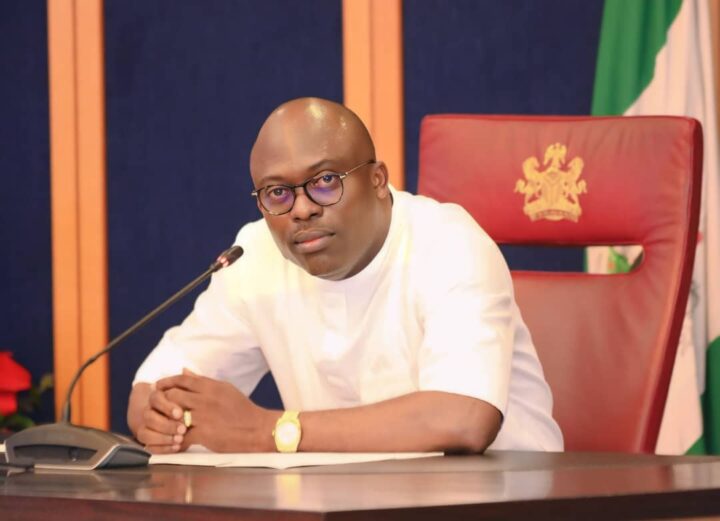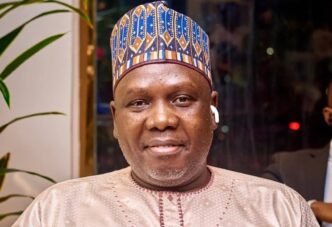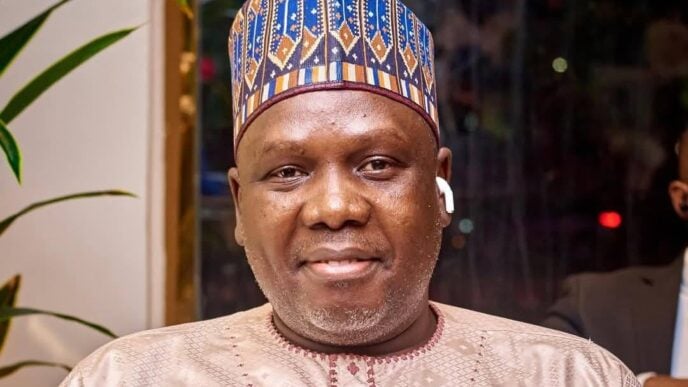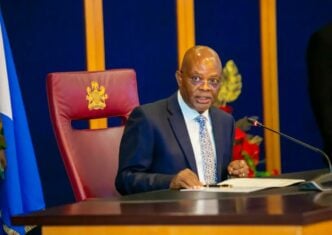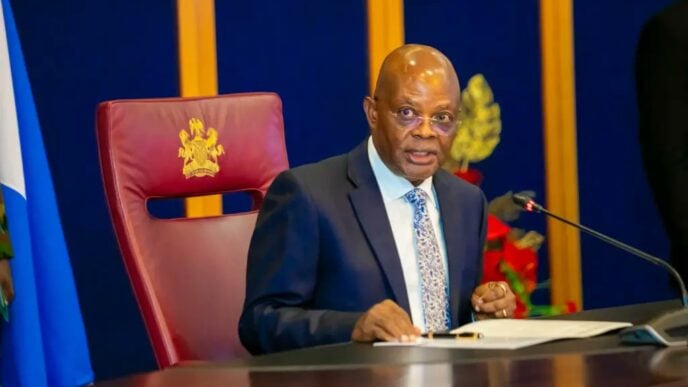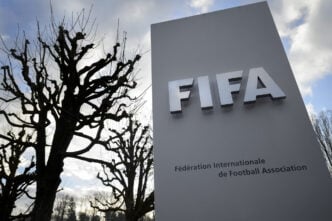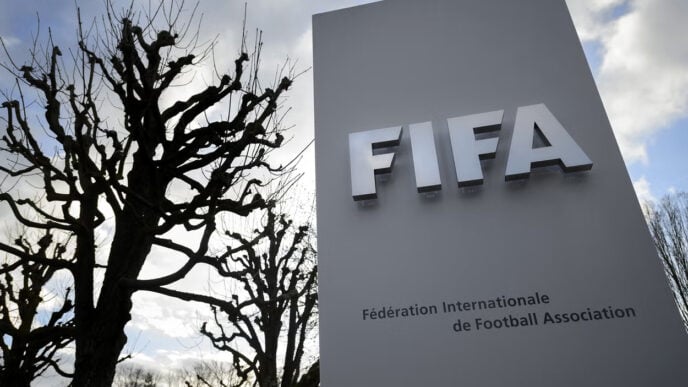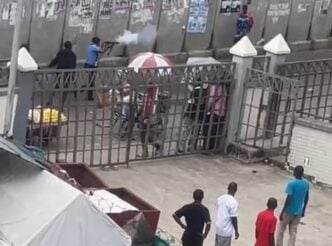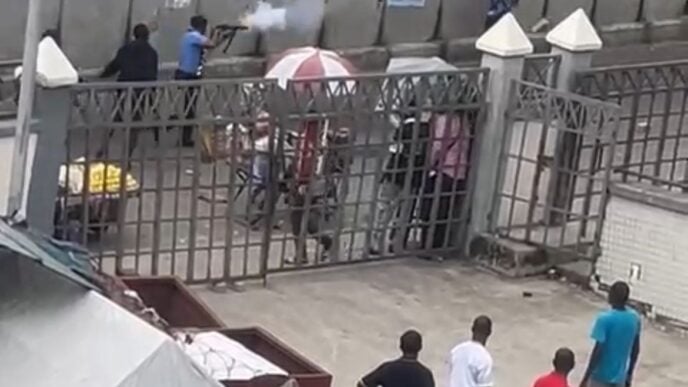Siminalayi Fubara
On Thursday, the six-month state of emergency declaration in Rivers state expired.
Nyesom Wike, minister of the federal capital territory (FCT) and former governor of Rivers, who played a central role in the state’s political crisis, had initially said the “coast is clear” for the termination of the emergency rule in Rivers state.
“I do know that by September 18, the state of emergency will expire, and that would mean that the state governor and state assembly will come back to their jobs, and we will have a government at the grassroots level,” Wike said after casting his vote in the LG elections on August 30.
“Having done this (LG elections), then the coast is clear for the state of emergency to be lifted, seeing that the state government has its representative and the local government has its representatives. So, we are good to go.”
Advertisement
On March 18, President Bola Tinubu declared a six-month state of emergency in Rivers, suspending Siminalayi Fubara, the state governor; Ngozi Odu, his deputy; and the entire Rivers state house of assembly.
The suspension followed escalating political tension between Fubara and Wike, his estranged predecessor, including the dramatic demolition of the Rivers state assembly complex.
In a national broadcast, the president cited the political crisis in the state and the failure of the actors involved to arrive at peace were the major factors that influenced his emergency rule declaration.
Advertisement
The main point the president seemed to rely on was the breakdown of law and order, citing the example of a pipeline explosion in the state and threats by militants as justification for the state of emergency.
Let’s take a peep at the intricate developments that led to the current state of affairs.
GENESIS OF THE RIFT
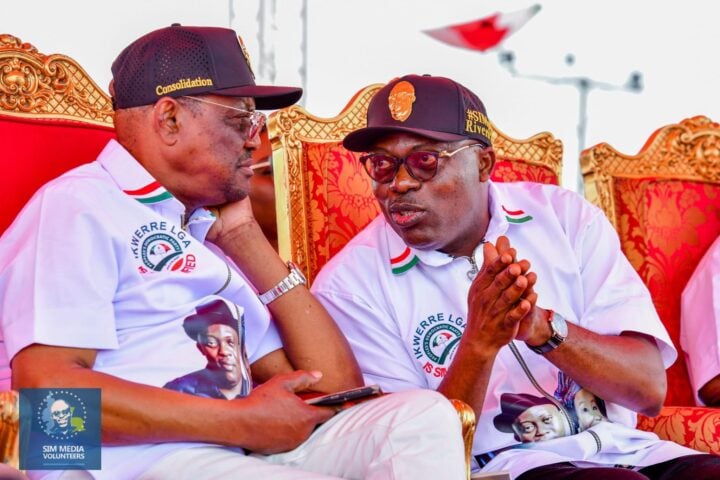
The discord between Fubara and Wike traces back to October 2023. Their fallout was primarily over control of the state’s political machinery, with Wike’s influence still significant within the Peoples Democratic Party (PDP) in Rivers.
Advertisement
This power struggle sowed seeds of division within the party, affecting governance and legislative processes.
‘BOMBING OF THE ASSEMBLY COMPLEX’
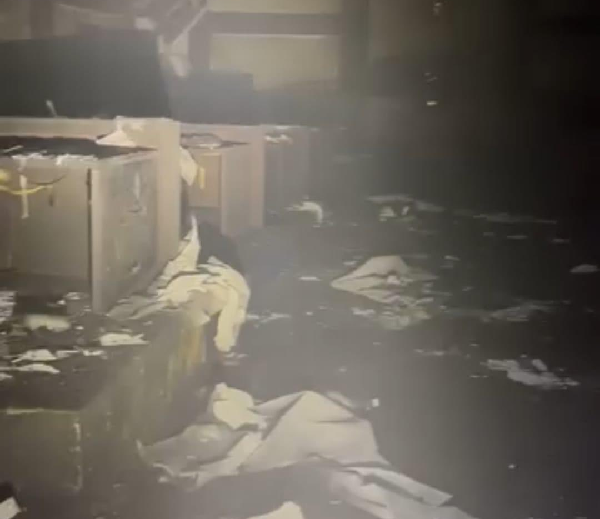
On October 29, 2023, a section of the Rivers state house of assembly complex was bombed, intensifying the political crisis.
This act of violence was attributed to factions loyal to Wike, aiming to assert control over the legislative arm.
Advertisement
The bombing not only disrupted legislative activities but also deepened the rift between the executive and legislative branches.
DEMOLITION OF THE ASSEMBLY BUILDING
Advertisement
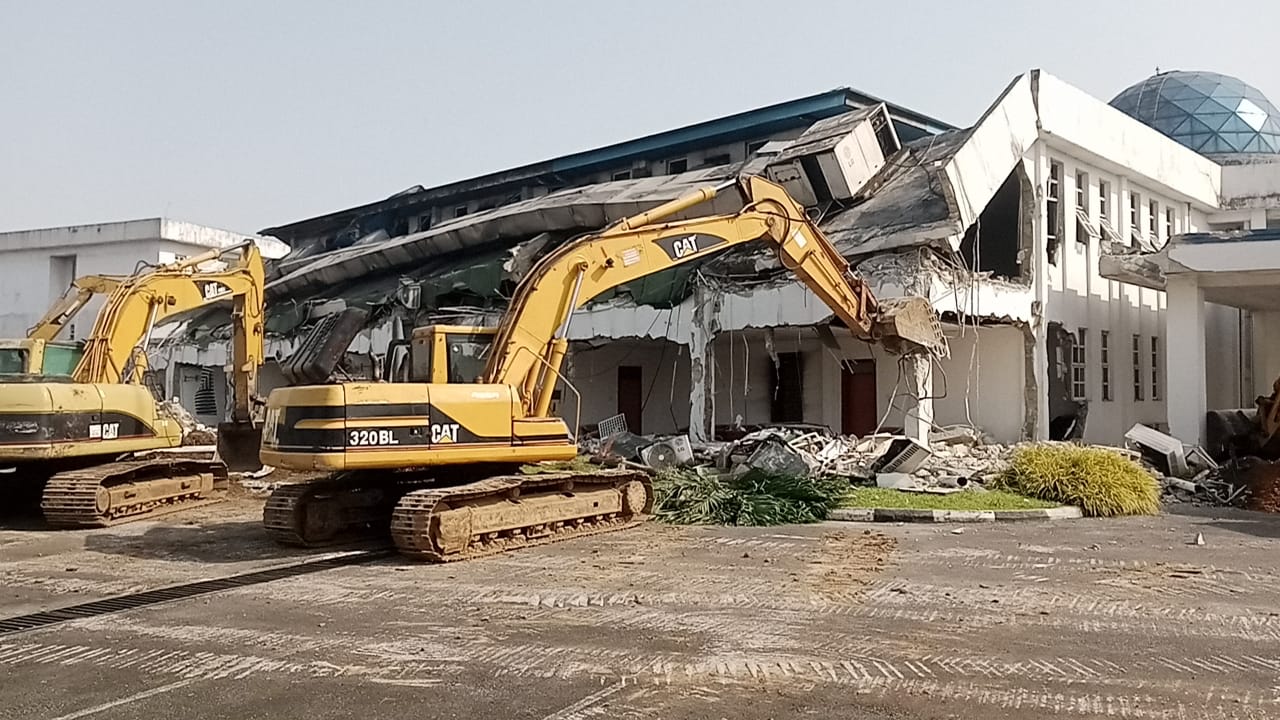
In December 2023, the Rivers state government, under Fubara, commenced the demolition of the assembly complex.
The state government said it commenced the demolition in a bid to renovate the failing structure.
Advertisement
The government justified this action by citing the building’s “unsafe condition” following the bombing.
However, critics viewed this move as a direct affront to the legislature and an attempt to weaken the opposition’s stronghold within the assembly.
Advertisement
‘THE COLLAPSED PEACE DEAL’
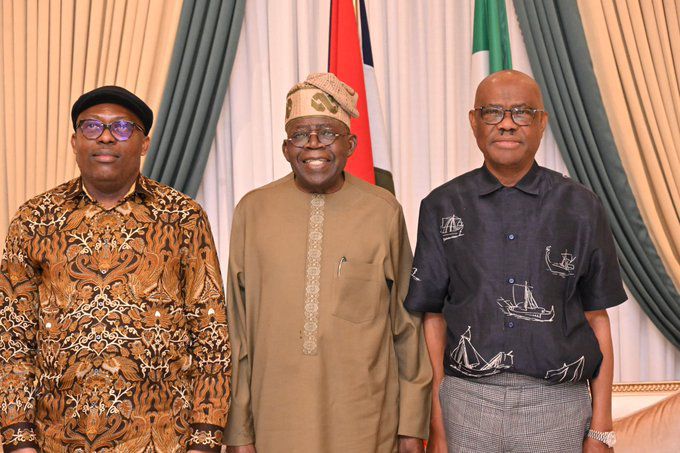
According to the resolutions reached at the end of a meeting held with Tinubu at the State House on December 18, all parties to the crisis in Rivers “agreed” that all matters instituted in courts should immediately be withdrawn.
In the eight-point resolution signed by Fubara, Wike, and other Rivers stakeholders, it was agreed that all impeachment proceedings against the governor should be dropped “immediately”.
They also agreed that Martin Amaewhule should be recognised as the speaker, while the 27 lawmakers who defected should be taken back as members of the assembly.
Despite the peace deal, the crisis persisted.
Fubara later said he was “ambushed” to sign a peace deal with Wike’s camp and not by the president, who initiated the deal.
Fubara, who said he signed the deal because of his desire to return peace to the state, added that Wike’s camp failed to abide by the conditions stipulated in the peace agreement initiated by the president.
BUDGET IMPASSE
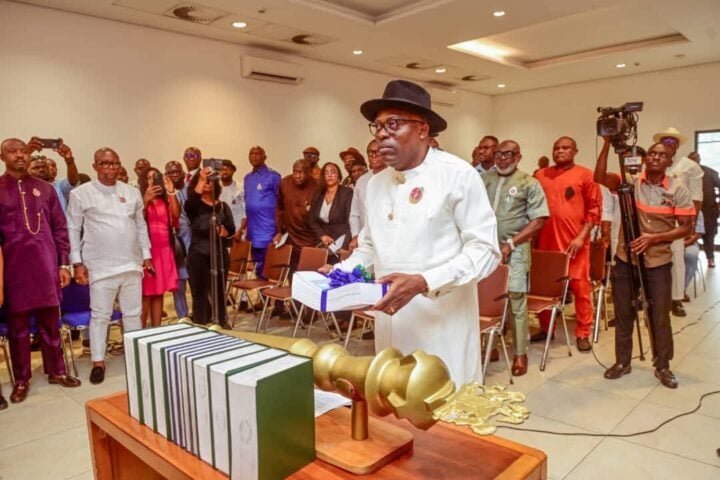
The demolition of the assembly coincided with the presentation of the state’s 2024 budget. With the legislative chamber compromised, the budget faced significant hurdles.
The absence of a functional assembly led to delays in budget approval, affecting the state’s financial planning and development projects.
In December 2024, the Rivers governor presented a 2025 budget proposal of N1.1 trillion to the Victor Oko-Jumbo-led state house of assembly that was loyal to him.
On February 28, the supreme court affirmed the judgment of a federal high court that barred the Central Bank of Nigeria (CBN) and the accountant-general of the federation from releasing statutory monthly allocations to Rivers state.
The apex court had ordered the CBN to withhold Rivers’ financial allocation until Fubara presents the state appropriation bill to the Amaewhule-led faction of the assembly.
Fubara had promised to comply with the judgement of the apex court.
Later, Fubara and some of his commissioners were prevented from accessing the Rivers house of assembly quarters in Port Harcourt to present the 2025 budget.
THE LG POLL CONTROVERSY
On October 5, 2024, the Rivers State Independent Electoral Commission (RSIEC) conducted local government elections.
The elections were marred by allegations of irregularities, leading to widespread criticism.
The supreme court later annulled the elections, citing non-compliance with electoral laws and procedures.
This development further eroded public confidence in the state’s electoral processes.
‘LEGISLATIVE TUSSLE’
The Rivers state high court sitting in Port Harcourt confirmed Edison Ehie, an ally of Fubara, as the authentic speaker of the state house of assembly.
The court also restrained Martin Amaewhule and Dumle Maol from parading themselves as presiding officers of the house or interfering with the activities of Ehie.
The speaker had declared 25 seats of members who sent “correspondence and notices” vacant.
There were 32 members in the Rivers house of assembly. Four members were on the side of the governor following the defection of 27. One member of the house had passed away.
‘COMMISSIONERS REDEPLOYMENT & RESIGNATION’
In May 2024, five commissioners who were loyal to Wike resigned their positions.
Chinedu Mmom, commissioner for education, resigned, citing “toxicity” in his workspace as a cabinet member.
Those who joined the resignation list were Gift Worlu, commissioner for housing; Inime Chinwenwo Aguma, commissioner for social welfare and rehabilitation; Jacobson Nbina, commissioner for transport; and Austen Ben-Chioma, commissioner of environment.
CONFUSION IN FUBARA’S CABINET
In April, Zacchaeus Adangor and Isaac Kamalu also resigned as commissioners following their redeployment.
Fubara had redeployed Adangor, attorney-general and commissioner for justice, to the ministry of special duties.
Kamalu, commissioner for finance, was redeployed to the ministry of employment generation and economic empowerment.
The aforementioned commissioners were among the cabinet members who resigned their positions in December 2023 following a political feud between Wike and Fubara.
They were reappointed after a peace deal between Wike and Fubara, which was facilitated by President Bola Tinubu.
Despite the peace deal, the political crisis in the state continued.
‘IMPEACHMENT THREAT’
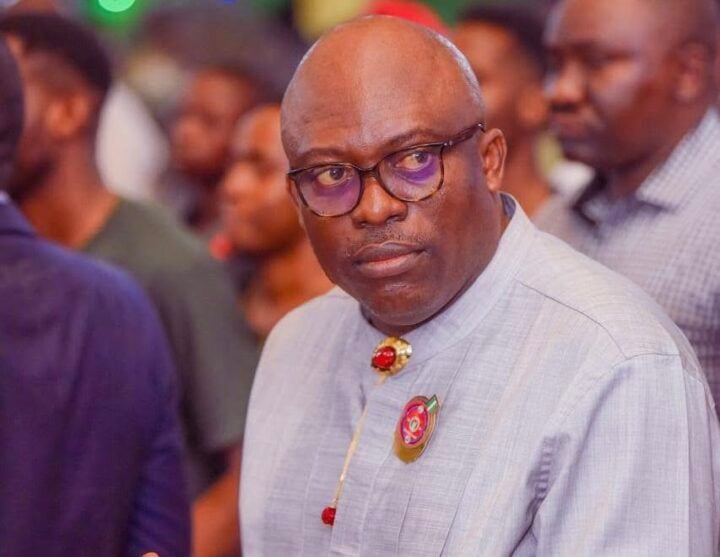
The lawmakers had threatened the governor with impeachment. They vetoed the governor in at least three bills after he declined his assent.
In March 2025, members of the Rivers house of assembly initiated an impeachment process against Fubara.
The allegations included misconduct and mismanagement of state funds.
The assembly presented a 19-point charge sheet, detailing various infractions committed by the governor.
This move was perceived as a culmination of the power struggle between the executive and legislative arms.
THE EMERGENCY RULE
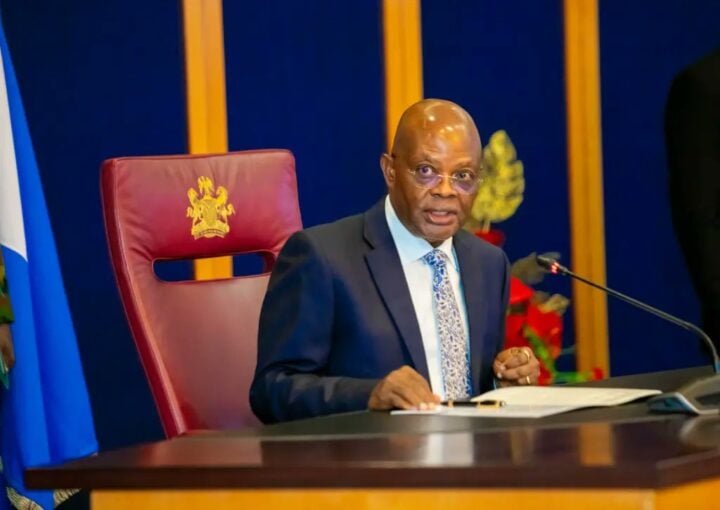
Amid escalating tensions, in March 2025, Tinubu declared a six-month emergency rule in Rivers state.
The president appointed Ibok-Ete Ibas as the sole administrator of Rivers.
RESOLUTION
Following the presidential intervention with the emergency rule declaration, efforts were made to reconcile the warring factions.
In June 2025, again, a peace meeting was brokered by Tinubu between Fubara and Wike.
Both leaders publicly declared an end to their rift, with Wike affirming that they had “all agreed to work together” for the state’s progress.
As Fubara returns to his seat, the state’s political future remains uncertain, with stakeholders closely monitoring developments.
